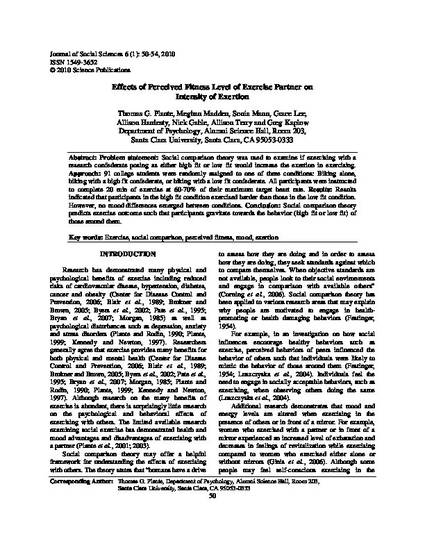
Problem statement: Social comparison theory was used to examine if exercising with a research confederate posing as either high fit or low fit would increase the exertion in exercising. Approach: 91 college students were randomly assigned to one of three conditions: Biking alone, biking with a high fit confederate, or biking with a low fit confederate. All participants were instructed to complete 20 min of exercise at 60-70% of their maximum target heart rate. Results: Results indicated that participants in the high fit condition exercised harder than those in the low fit condition. However, no mood differences emerged between conditions. Conclusion: Social comparison theory predicts exercise outcome such that participants gravitate towards the behavior (high fit or low fit) of those around them.

© 2010 by the authors; licensee Science Publications. This article is an open access article distributed under the terms and conditions of the Creative Commons Attribution license.
http://doi.org/10.3844/jssp.2010.50.54